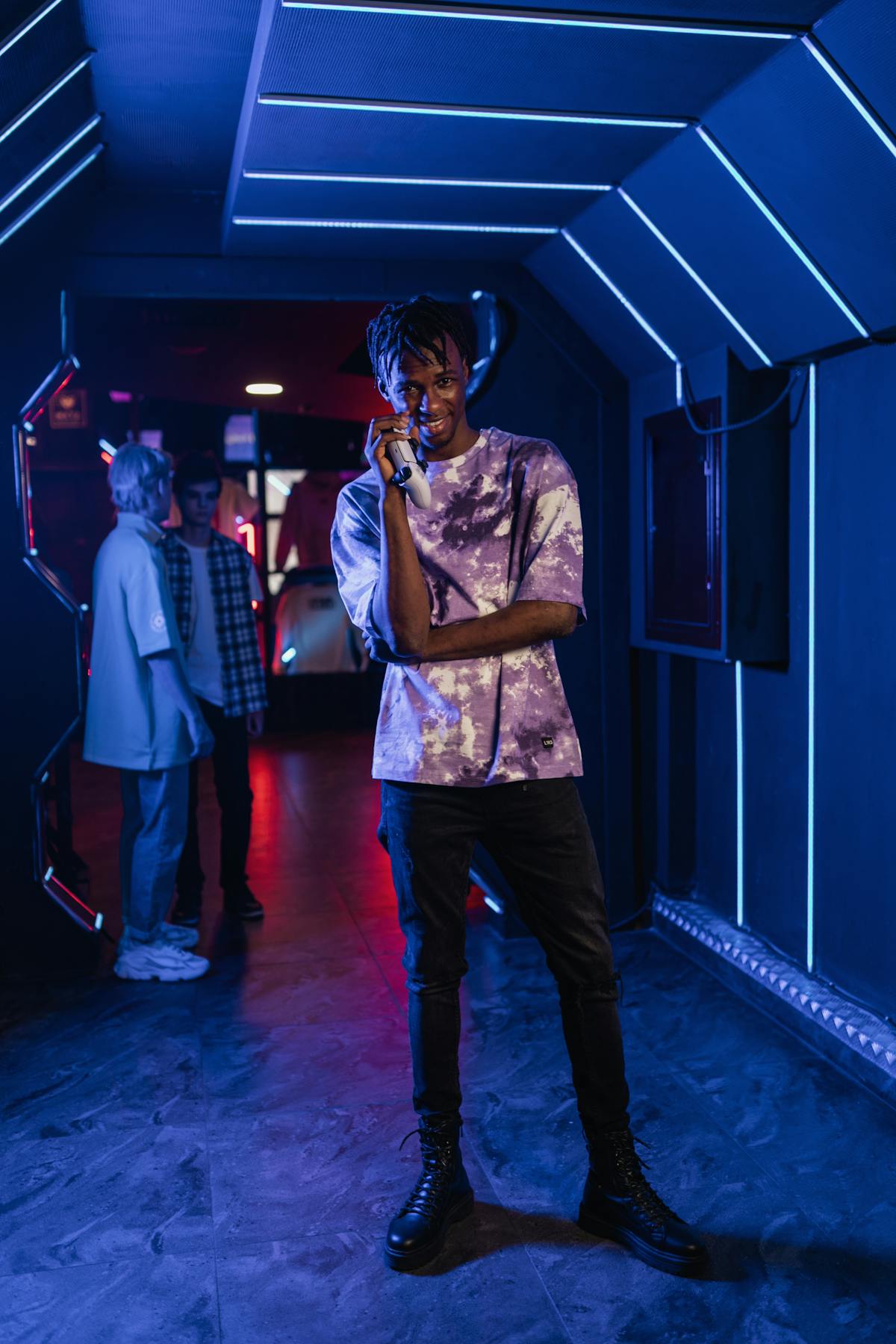The Game Awards just got caught doing something truly awful. For five years, Geoff Keighley’s gaming event ran a program called Future Class that was supposed to champion rising talent from marginalized communities. Around 50 developers, writers, designers and advocates were selected annually to represent the bright, bold, and inclusive future of video games. It sounded noble. It sounded like the industry finally taking representation seriously. Except it was all theater.
Emma Kidwell, a narrative designer who worked on Marvel’s Midnight Suns and Civilization VII, noticed something disturbing in early November 2025. All mentions of the Future Class program had vanished from The Game Awards website. Five years of celebrating emerging talent, gone. The only proof it ever existed? The Wayback Machine internet archive. Kidwell posted about it on social media, and suddenly dozens of former Future Class members started sharing their stories. The picture that emerged is ugly.
What Future Class Was Supposed To Be
Future Class launched in 2020 with genuinely good intentions, or at least good marketing. Geoff Keighley and his team wanted to spotlight people who weren’t getting enough attention in the gaming industry. Women, people of color, LGBTQ developers, disabled creators, anyone pushing for a more inclusive future. Each year, around 50 honorees were selected and given a platform at The Game Awards, one of gaming’s biggest stages with millions of viewers.
The program promised mentorship opportunities, networking with industry veterans, career advancement, and visibility that could change lives. For emerging developers from marginalized backgrounds, being selected for Future Class felt like validation. It meant your work mattered. It meant the industry saw you. It meant doors would open. At least, that’s what they were told.
The Reality Behind The Curtain
According to multiple former honorees who spoke with Game Developer and other outlets, Future Class delivered almost none of what it promised. Members got access to a Discord server for networking, which worked reasonably well at first. They received free tickets to The Game Awards ceremony. That was pretty much it. The mentorship programs never materialized in any meaningful way. The career opportunities were vague and rarely concrete. One anonymous honoree told reporters they felt tokenized, like their presence was more about making The Game Awards look good than actually helping their careers.
Malek Teffaha, a 2022 Future Class alum, said the news of the program’s quiet cancellation honestly hurt. He thought it was a platform to bridge gaps in the industry, not just a publicity gesture. That’s the recurring theme in testimonies from former members. They believed in what Future Class represented, invested emotional energy into the community, and genuinely thought it would lead somewhere. Instead, they got backpacks with The Game Awards logo and photo opportunities that benefited the event more than the honorees.

The Letter That Changed Everything
Things got really bad in 2023 when Future Class members collectively wrote a letter to Geoff Keighley and The Game Awards leadership. They asked the show to acknowledge the humanitarian crisis in Gaza and use its massive platform to call for peace. The letter wasn’t radical. It simply asked that an event claiming to champion marginalized voices actually say something about a crisis affecting millions of people.
The Game Awards completely ignored the letter. No response. No acknowledgment. Nothing. Communication between Future Class members and the program leadership basically stopped after that. Emily Weir, one of the organizers, eventually confirmed on the Future Class Discord server that the program had completed its promised cycle of programming for the 2023 cohort and would not be inducting new members. There were no active programming plans. Translation: Future Class was dead.
The Quiet Deletion
The Game Awards didn’t announce the end of Future Class. They just stopped talking about it. When Emma Kidwell checked the website in November 2025, she discovered that every page, every mention, every trace of five years worth of honorees had been scrubbed. Hundreds of developers who were told their work mattered, who were publicly celebrated on stage, who were promised a place in gaming’s future, had been erased like they never existed.
This isn’t just bad optics. It’s deeply disrespectful to people who believed in the program and invested time and emotional energy into the community it created. Kidwell put it bluntly in her comments to media: she felt disrespected. Accolades are important to marginalized folks. Not being able to access even an archived post kinda sucks. It’s a bad look to erase five years of we’re uplifting incredible devs to suddenly don’t look, don’t look.
The Replacement Nobody Asked For
Here’s where it gets even more insulting. Instead of inducting a new Future Class in 2024, Geoff Keighley introduced the Game Changer Award. The inaugural recipient? Amir Satvat from Tencent, honored for his efforts tracking industry layoffs. It’s a noble cause, sure. But the timing and positioning made it look exactly like what many suspected it was: a replacement for Future Class that was safer, less controversial, and didn’t come with dozens of marginalized voices demanding the show take stances on uncomfortable issues.
One award to one person who works for a massive corporation is a lot easier to control than 50 emerging voices from communities that have historically been ignored and exploited by the gaming industry. The message seemed clear. The Game Awards wanted the good PR from appearing inclusive without the actual work of listening to marginalized creators when they speak up about things that matter.
Why This Matters Beyond Awards Shows
The Future Class story is bigger than just one program at one awards show. It represents a pattern in the gaming industry where diversity and inclusion are treated as marketing tools rather than genuine commitments. Companies and events love to talk about uplifting marginalized voices when it makes them look good. They feature diverse creators in promotional material, give out awards with inclusive language, and pat themselves on the back for being progressive.
But when those same marginalized creators ask for substantive support, when they speak up about political issues, when they demand the platforms they’ve been given actually mean something beyond photo ops, suddenly the enthusiasm disappears. Programs get quietly shelved. Websites get scrubbed. Communication stops. The creators who believed in the mission are left feeling used, tokenized, and ultimately erased.

The Bigger Problem With Game Industry Recognition
The Game Awards has always had an uneasy relationship with being gaming’s biggest celebration. It’s part awards show, part marketing event, part corporate product showcase. Geoff Keighley has built something genuinely impressive in terms of viewership and cultural relevance. But that success comes with responsibilities, especially when you create programs explicitly designed to champion people who lack power and visibility in the industry.
Future Class members weren’t asking for much. They wanted the mentorship and opportunities they were promised. They wanted their accomplishments to remain visible on the website that celebrated them. They wanted the show to occasionally use its massive platform to acknowledge humanitarian crises when marginalized communities are directly affected. These aren’t radical demands. They’re basic expectations for a program that claimed to care about their success and wellbeing.
What Happens Now
The Game Awards 2025 takes place December 11. There’s no indication Future Class will return. The program pages remain deleted. Geoff Keighley hasn’t publicly commented on the controversy beyond the brief message from Emily Weir on Discord. Former honorees are left processing the reality that a program that meant something to them was apparently just performative from the start.
Some former members are speaking out, sharing their experiences, making sure at least the internet remembers what happened even if The Game Awards won’t. Others are moving on, focusing on their careers and the actual work of making games rather than chasing validation from an industry that repeatedly demonstrates it only values marginalized voices when they’re quiet and grateful.
FAQs
What was The Game Awards Future Class program?
Future Class was launched in 2020 by The Game Awards to spotlight around 50 emerging talents annually from marginalized communities in gaming, including developers, writers, designers and advocates. The program promised mentorship, networking opportunities and career advancement for people representing the future of the industry.
Why was Future Class cancelled?
The program was quietly shelved after 2023 with no new cohorts in 2024 or 2025. According to reports, communication broke down after Future Class members signed a letter in 2023 asking The Game Awards to acknowledge the humanitarian crisis in Gaza. The letter was ignored and the program effectively ended shortly after.
Who is Emma Kidwell?
Emma Kidwell is a narrative designer who worked on Marvel’s Midnight Suns and Civilization VII at Firaxis Games. She was inducted into Future Class in 2023 and was one of the first to publicly notice that all mentions of the program had been deleted from The Game Awards website in November 2025.
Were Future Class members told the program was ending?
Not officially through public channels. Organizer Emily Weir confirmed in a Discord message that the 2023 programming cycle had completed and there were no plans for new cohorts, but there was no formal announcement or explanation for why the program was ending or being erased from the website.
What did Future Class members actually receive from the program?
According to testimonies from former honorees, they received access to a Discord networking server, free tickets to The Game Awards ceremony, and recognition during the show. However, the promised mentorship programs and substantial career opportunities largely failed to materialize, leaving many feeling tokenized.
Did The Game Awards replace Future Class with something else?
In 2024, instead of inducting a new Future Class cohort, Geoff Keighley introduced the Game Changer Award, given to Tencent’s Amir Satvat for tracking industry layoffs. Many saw this as a replacement that was safer and easier to control than 50 voices from marginalized communities.
What did the 2023 letter from Future Class members say?
Future Class members collectively wrote a letter asking The Game Awards to acknowledge the humanitarian crisis in Gaza and use its platform to call for peace. The letter was completely ignored with no response or acknowledgment from show leadership, after which communication with the cohort effectively stopped.
Can you still find information about Future Class honorees?
The Game Awards removed all mentions of Future Class from their official website. The only way to see the original pages is through the Wayback Machine internet archive, which Emma Kidwell pointed out after discovering the deletion in November 2025.
Conclusion
The story of Future Class is a cautionary tale about the gaming industry’s approach to diversity and inclusion. What started as a program with genuine potential to help emerging creators from marginalized communities turned into exactly what many feared: performative activism designed for good PR rather than substantive change. When Future Class members asked the program to live up to its stated values by acknowledging humanitarian crises, they were met with silence. When they expected the mentorship and opportunities they were promised, they got free tickets and backpacks. When they looked for evidence that their recognition meant something, they found deleted pages and erased history. The phrase we were effectively props captures the experience perfectly. These developers weren’t partners or valued voices. They were decorations, diverse faces to put in promotional materials, proof that The Game Awards cared about inclusion without requiring the event to actually do the uncomfortable work that genuine inclusion demands. Five years of honorees, hundreds of developers who believed they were being lifted up, vanished from the official record like they never mattered at all. That’s not just disappointing. It’s a betrayal of trust that reflects poorly not just on The Game Awards but on an industry that repeatedly chooses aesthetics of diversity over meaningful support. The former Future Class members speaking out now are making sure their stories survive even if the program page doesn’t. Their voices matter more than any award ceremony ever could.


